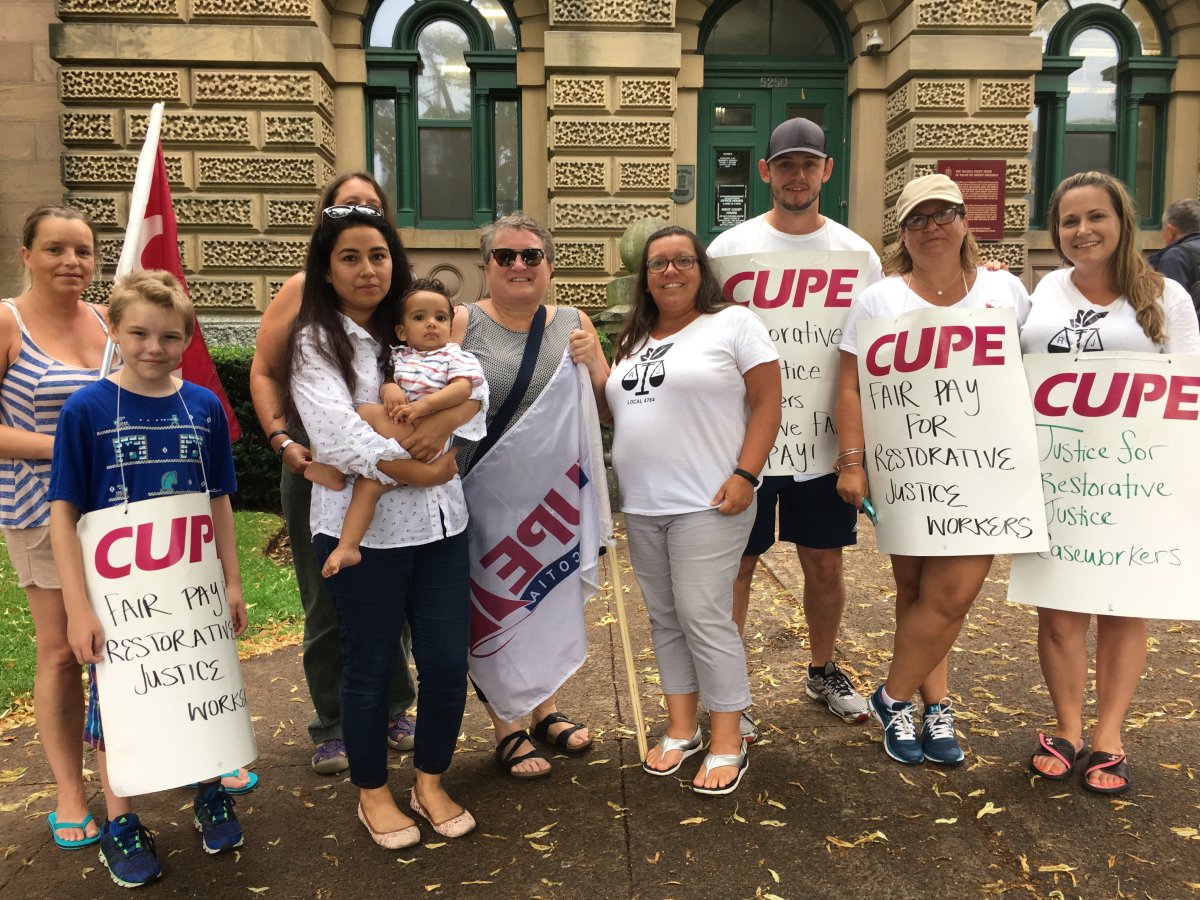Restorative justice workers have been on the picket lines for nearly two weeks, and still there is no end in sight.

After conciliation talks at the end of July broke down, CUPE 4764 members sent 48 strike notice to Minister of Justice Mark Furey and walked off the job on July 30.
Since then there have been no further talks. Case workers are employed by the Community Justice Society, but because their funding is 100 per cent provided by the government, they say the Justice Department needs to come to the bargaining table.
Premier Stephen McNeil said on Thursday that they need to negotiate with their employer.
“We provide a grant to the employer and we have said we’re willing to look at the grant, but they need to go back and negotiate with their employer.”

Get daily National news
He didn’t expand on how that could work given the current impasse. Caseworker Shila LeBlanc said the process is frustrating.
“I feel that because the Department of Justice has us organized as an independent non profit agency that it does allow for this exploitative structure to continue. If they were our employer they could never pay us these wages.”
She said after deductions, case workers only bring in $14.40 an hour, and that pay does not increase with experience.
READ MORE: Halifax restorative justice caseworkers serve 48-hour strike notice
Jillian Smyth went through the program after getting into trouble as a teen and said it helped to change her life.
“I probably would not have finished my high school if it weren’t for this program. So that would have academically held me back quite a bit, and just as a person I would not have been where I am today, knowing right from wrong.”
Jillian says the program gave her a chance to grow through her mistakes and says the success is all thanks to the dedication of her case workers. pic.twitter.com/G9ftaMKb0p
— Alicia Draus (@Alicia_Draus) August 9, 2018
She is now attending Dalhousie University and has recently been accepted into an engineering program in Egypt. She said her case worker played an important role in her life.
“That relationship was very very strong.”
Mark Chiasson also understands the benefits of the program, having watched his son go through it.
“If he didn’t get that help he would just be a repeat offender or at a high likely of being a repeat offender, or at a high likely to be a repeat offender,” Chiasson said.
Cases can be referred to the restorative justice program through police officers, Crown lawyers and judges. In some cases people can even go through the program after serving time.
Defence Lawyer Josh Bearden calls it an integral part of the justice system.
“They can be referred with the purpose of education and accountability, and accountability means actually doing something to make up for what you did wrong, and that’s really important because the accountability portion centres on the victim,” he said.
“I really feel restorative justice is one of the few places in the justice system at all where victims get real authority or voice.”
Case workers continue to picket in front of the courthouse. With no new talks scheduled, they said they will keep putting pressure on the government.
LeBlanc said ultimately it wouldn’t cost a lot for the government to increase wages for the six case workers.
“Under $200,000 annually, I think it’s under the $100,000 mark. This is not a big problem financially. We’re not even asking for wage parity with probation officers,” she said.
“We just want a living wage and something that increases over experience.”




Comments